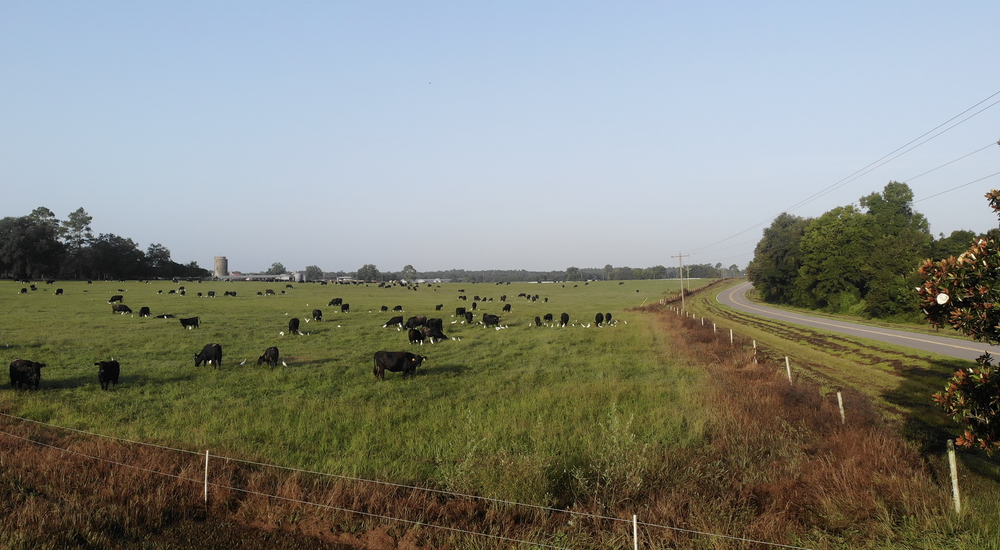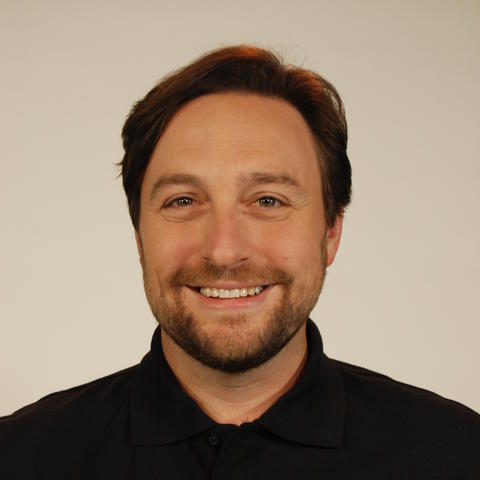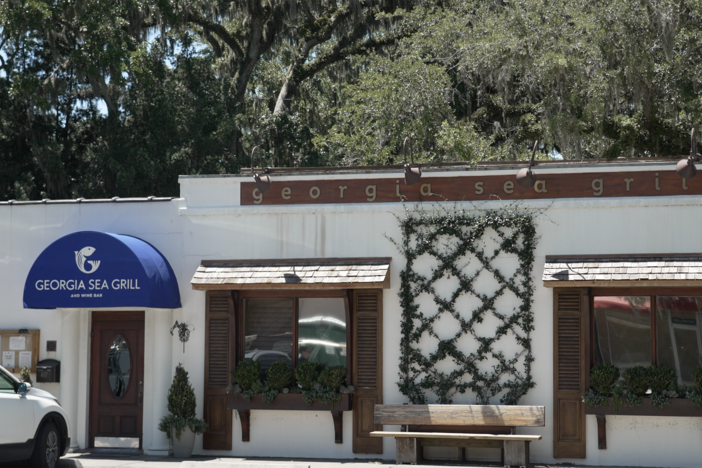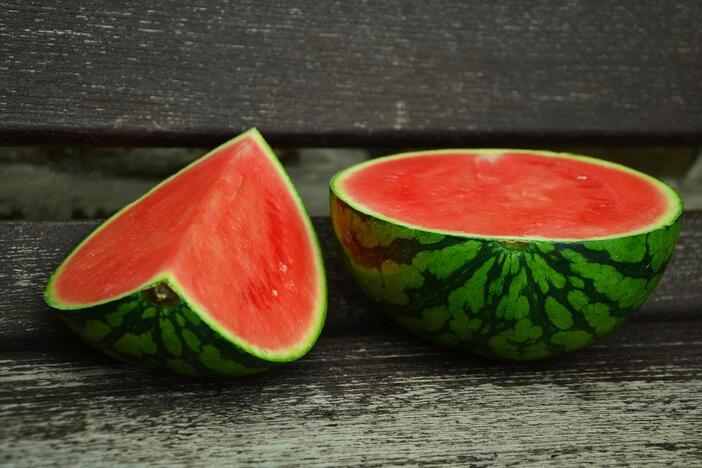
Section Branding
Header Content
A Fork in the Road Podcast: Grady Ranch Farms
Primary Content
Grady Ranch Farms, a fourth-generation family business in Georgia, transitioned from a dairy to specializing in 100% grass-fed Angus beef. This Fork in the Road Podcast episode explores their journey, from adapting to market changes to perfecting their craft. Grady Ranch Farms prioritizes quality, flavor, and sustainability and by focusing on consumer education and building relationships, they have created a successful and thriving business, inspiring future generations of farmers.

Bobby Holden: It's it's just been his mission is to, uh. He's always said, grass fed. We don't want people to buy it just cause it's healthy. We want them to buy it because they like it.
David Zelski: In the ever evolving agriculture industry, making it as a small farm requires the ability to adapt and change. It is true that sometimes the best plan of action is to alter your course. Today we visit a farm that began as a dairy operation, but now specializes in beef fed on the finest Georgia grass.
Theme Song: I came from the mud, there's dirt on my hands. Strong like a tree, there's roots where I stand.
David Zelski: I'm David Zelski, and this is the Fork in the Road podcast presented by Georgia Grown and the fine folks at Georgia Public Broadcasting. Each episode, we feature stories from Georgia's farmers, fishermen, merchants, artisans, chefs and others who help provide Georgia-grown products to folks in the Peach State and beyond. Today, we're headed down to the edge of the state, just 13 miles north of the Georgia-Florida line in Grady County in Southwest Georgia. This is where we find the town of Whigam, population 428. Whigham is home to Grady Ranch, a fourth-generation family farm whose specialty is 100% grass-fed Angus beef.
Bill West: Okay, I'm Bill West. I'm one of the operators and partners of Grady Ranch. Our — our business is to raise high quality, grass-fed beef.
David Zelski: You're not the first generation to be on this ranch. Tell me about its beginnings.
Bill West: First generation. My father, Glenn West, he did business as West Haven Farms, and he had a dairy, and he operated a dairy farm. Had registered brown Swiss cattle. But he also like beef cattle. He had, dabbled in Limousin and other breeds. When this place was first put in, it was put in as a beef operation, and, and he put it in as a beef operation and, basically, that's all that was here — was a cow/calf herd. And there, in the early '70s, when several different partners in that business — which was my brother, my brother in law and my father — we decided we'd rather have our own individual businesses. And one of my brothers, Miles, Bob Holden and I put in our and bought this section. By that, I mean, we signed our name to a note and, put in a dairy here. So we operated the dairy from 1976 till 2012.
David Zelski: In the early 2010s, changes in the dairy industry made Bill and his family rethink the best way to move forward with their business. Here's Bill's nephew, Bobby.
Bobby Holden: My name is Bobby Holden. I am owner-operator of Grady Ranch. Fourth generation.
David Zelski: This is a family business. Longtime family business.
Bobby Holden: Yeah.
David Zelski: Tell me about — about that and what it's been like.
Bobby Holden: It's — it's basically all I've ever known. I, in the '90s left and went to school and graduated from University of Georgia with a dairy science degree. And — and we were a fourth-generation dairy farm here. And then, in 2012, my father, who was partnered with my uncle and I, he decided to retire. The dairy industry was at a point of change, and we were going to have to increase size to a point that, we just weren't really comfortable with because dairy was an industry of economies of scale. And, we were already rotationally grazing the dairy herd. And we decided to go with the beef herd, which is a lot less management-intensive because we weren't to the size to be able to replace my father, you know, in a management position. So, we went with the beef herd and with a couple of tweaks, we were able to get, totally, 100% grass-fed certified on our beef. And then, the first two years we tried selling commercially, you know, with the livestock markets. And then we realized that the real opportunity was in going all the way to retail.
David Zelski: Changing course turned out to be a stroke of genius for Grady Farms. Their grass-fed beef business soon became their main focus.
Bill West: That took off in a fashion that, what we did, we just kept increasing the beef herd, slowly quit doing row cropping like peanuts, soybeans, corn, that sort of thing, and just turned everything more into pasture. We became basically a beef operation now, and so we're still equipment-wise, you'll see around us, we're in the middle of still evolving from the dairy operation to things that work a little better for the beef cattle down there.
David Zelski: When first getting involved in the beef business, Bill admits he had some learning to do and some prestigious universities lend a helping hand.
Bill West: I did not know all the cuts of meat. I didn't, you know, I had not been in the beef business. By no means was — means were we experts at harvesting a cow. And so that's where we worked with the University of Georgia. The test that University of Tennessee had done where they came at 25% of fat on the hoof is what most people like, then you're working with the University of Georgia: How do we get a grass-fed animal to 25% fat? And — and basically do basically the same way we did with a dairy. You just got to make sure you have high-quality forages in front of them year-round.
David Zelski: Pivoting into a whole new business can require some creative experimentation. Grady Farms took special care in finding the perfect breed of cow for their beef operation.
Bobby Holden: In the dairy business, we used the Holstein breed, and they're a wonderful milking breed, but not so much for beef. And then, we did some kind of market research in trying to figure out — we knew that we wanted to sell a high-quality product. And then we settled on Angus because of the carcass traits that Angus represent and the high-quality beef that Angus produced. And you could raise the Brahman breeds a little easier here in this tropical environment, but they don't have the — since we were selling a premium product, we needed something that had the premium carcass traits. And Brahman don't, percentage-wise, produce as much as the Angus do. And so we settled on the Angus breed, and we've pretty much gone from there. And then, we just have been studying Angus and how to best produce them in — in this environment.
David Zelski: There are plenty of reasons why consumers opt for grass-fed beef over the cheaper varieties. There's the health benefits, sure, but if the product doesn't taste good, there goes your return customers. This is where that 25% fat content comes into play.
Bill West: And you won't laugh at the taste. People will buy grass fed because of the health benefits of antioxidants, the omega-3s, things that would come with a fat that's more soluble and also a little less problems with different types of E.coli that would come into a pen-raised or — or slab raised, what we call it — operation. People enjoy that. They will buy grass-fed for health reasons once or maybe twice, but if they don't like it, they don't come back. And — and when we first started this — and I was sort of the same way; I don't particularly like what I had eaten that's grass fed. And what we found out if he's on a really high protein forage, perennial peanuts developed by the University of Florida, that South Georgia's and North Florida's alfalfa that works great in the summertime. High sugar grass is like one of our cool season grasses like ryegrasses. Those kind of things, they taste real good coming off of.
David Zelski: Bobby says his uncle Bill has dedicated his life to finding the perfect combination of foliage to produce the healthiest and best tasting, grass-fed beef.
David Zelski: People in general through the years, have thought: "Grass fed, it's going to be lean. We don't have as much taste." But that's what you've been battling. That's what you've proven isn't always the case.
Bobby Holden: Yeah. And then that's my uncle which — Bill West — it's, it's just been his mission is to — he's always said, "grass fed. We don't want people to buy it just cause it's healthy. We want them to buy it because they like it." And so that has been his mission in figuring out which combination of grasses produces the best-tasting beef. And like the old adage, you are what you eat. Same for people and cattle. And so you can actually change the flavor profile of the beef by what grasses they eat. We use several different varieties of grass. In the cooler months, we use a mixture of ryegrass, oats. And then in the warm season, we revert more to the native grasses, the coastal Bermudas and Bahias. And then also we grow another crop called perennial peanut, which is a forage producing only peanut plant; it's the ancestor to the nut plant. And it offers — its being a legume, it makes its own nitrogen. And also it has a better carbohydrate to protein ratio, which helps to add weight to, to the animals.
David Zelski: There really is a lot of science going into this process. You see, different grasses contribute to the flavor profile of the beef in different ways, and grasses with more sugar content fatten up the cattle at a faster rate.
Bill West: Cool season grasses tend to hold a little higher sugar content. That does, as in a carbohydrate, if you ate a lot of sugar, you're going to get fatter. And — and also we had to learn that — we thought a younger animal was better. It turns out not so, not necessarily. If below 24 months, that has not worked well as a grass fed. He's growing, putting on bone size, getting height. He doesn't easily put on that fat till he got that done. And then once he's grown, just like us when we hit, what, 35 years old? You all of a sudden — you never worried about getting overweight, but all of a sudden you are. And — and of course, when you hit 69, it really happens. But, as one side benefit of doing this, I work with a lot of people who are nutritionists, bodybuilders, powerlifters that 'cause they eat so much ground beef. And I had to learn how to maintain since that you lose muscle mass as you get older. And eating a smaller, a reasonable amount of red meat of the right type, maintains muscle mass easier. And so it's, a lazy way of keeping muscle mass on there as long as you're not overdoing it with other sugars and, you know, honeybuns and — and soft drinks.
David Zelski: For us humans, too much extra fat can be a bad thing. But when you're running a beef business, well, it's money in the bank.
Bill West: So here only thing we're selling is pounds. And so the more pounds you can produce per acre, and the more pounds you produce for the farm, the better you are financially.
David Zelski: Now, I hope to make some small farm very rich someday. Changing from a dairy business to a beef business meant a lot more face to face interaction with customers. For Bobby, that was actually pretty challenging, but not necessarily in a bad way.
Bobby Holden: For my part of the operation, that's where the largest learning curve was, was going from commercial agriculture, where you just dealt with brokers basically to taking it to the end consumer. And also that has turned out to be my most favorite part of the transition is getting to actually meet the person face to face that's going to consume a product and get — and get personal feedback. It's — that's probably the most rewarding portion of the business, is actually seeing people enjoy the product that you produce.
David Zelski: And you talked about that, that part of your job you like. And I guess the farmers markets are — explain those farmers markets who you meet and what you share.
Bobby Holden: Farmer's markets is probably my favorite duty that I have. And that's because you get to meet people. I ran the dairy here for 22 years before we got into this part. And pretty much everybody you talked to had four legs. And so at the farmers market, they ... they talk back.
David Zelski: And for Bill, changing to a more customer-facing profession was even more difficult.
Bill West: Yeah. And I certainly have spent 40 years on a tractor and, and, just working with cows and running a dairy farm and planting row crops, I never dealt with the public at all, ever. Just something I had not done in my entire life. And all of a sudden, being in my 60s and meeting the public on a regular basis and having to speak. I have a little bit of social anxiety disorder. I don't like getting in front of a group. That's something I had to learn how to do and start doing and how to speak, in front of a group. And that was really terrible for me to start with, to say the least. The — I can hide it well, but I can tell when somebody else is getting that panic attack that's having to talk in front of a group, because I have been there and I know what it feels like. And I know when, "okay, I'm having a heart attack, but I'm hiding it." Yeah. And, but over time, I got to kind of enjoy it. And I really enjoy meeting our customers, individuals, find out what they like, what they don't like. It's — that's the sort of thing that I've gotten to enjoy over time. And I really didn't think I would because it's not my normal personality.
David Zelski: Making that personal connection with the end consumer is a big part of every small farm. That connection helps build a sense of pride and community, and it also provides an opportunity for farmers to maybe teach their customers some new things.
Bobby Holden: So we've learned that in the farmers market atmosphere, you get a lot of chance to do consumer education and not just about our product, but about agriculture in general. And then — Ag just taken a bad rap these last few years as far as ecology and different things like that. But once you put a face to the farmer, you know, to the consumer, they — they become wonderfully loyal and just really get into just knowing where their food comes from. It gives — it gives them a good sense of security and satisfaction to know that the meat they're buying from me, and then also the produce and the other things that in the market, they're buying it from the person that produced that food. You're able to convey that a lot of what you hear in the general media, about agriculture is taken mostly out of context. And then — then when you can show how we are stewards of the land and then the — the American farmer was the first environmentalist. And, it's just we derive our livelihood and provide for our families off of this land. So the last thing we would ever do would be to jeopardize it. And it just gives us a chance to speak the good — the good about agriculture. And that's something I really enjoy because it's a passion for us.
David Zelski: Bobby has instilled that passion for agriculture into the next generation of Grady Farms.
Bobby Holden: My son, Ben, he's come on with us. And he went to the University of Georgia, got a degree in —
Ben Holden: Ag Science and Environmental Systems.
Bobby Holden: Ag Science and Environmental Systems.
Ben Holden: My name is Ben Holden. I am an employee of Grady Ranch. Yeah, I'm learning from family. I'm a fifth-generation coming in. So I graduated from the University of Georgia with a ag science environmental systems degree. Coming back home was pretty much always my plan. Being raised up here, I've always been in the agricultural field. It's just been a very experiential learning process. To figure out how what processes work and what processes won't. Through trial and error, really. Having your father and your great-uncle as your teachers are kind of fun as well, but as at the same time, it can be a little, a little, strenuous because, you know, that's your father, that you're trying to impress or your uncle that you're trying to impress and share the how much you want to put into this farm and show that you'd be able to handle the operation later on or along the way as, you know, things — as people start to retire and, you know, just get busy and life goes on.
David Zelski: You got to earn your stripes for them, right?
Bobby Holden: Yeah. You've got to show. You got to show your worth.
David Zelski: Grady Farm's transition from milk to beef was something Ben was very grateful for.
Ben Holden Well, I guess to be honest, if it was still dairy, I probably wouldn't have come back. That's a job that really is for, a certain breed of people. It's a lifelong, you know, 24 hours a day, 24/7. You don't get a break from dairy. When I came back, when I came into high school, the year before I graduated high school, we transitioned from the dairy to this grass-fed beef operation. And that, from being able to look and see what they're doing and kind of come home on summers and be able to work with them? Kind of let me know that this is something that I'd be very interested in, you know, being able to, work outdoors every day, not be in an office setting. Stay active. It is really something that I found that I enjoyed. And I was able to pour myself into. And with raising cattle, you have something that can actually move around and, you know, it's an animal that you're taking care of, and you can actually see the care that you pour in and come back and show you how well that you've done or not.
David Zelski: I then ask Ben what makes the perfect grass fed beef.
Ben Holden: Your breeding traits would have to do to do a lot with it. You're looking for the correct carcass traits. You're looking for somebody that isn't skin and bone, but isn't just a butterball — isn't fat, isn't overweight. You're looking for a cow that has, adequate feed that doesn't — pretty much has its feed all day long, hardly ever has to move. You know, you're supplying everything that you have to that cow right there where it's at. So it doesn't have to work at all to have its food. It can still go around and graze as much as, as much as it likes. But, for the really powerful grazing, I'd say, more is that's what you're looking to get. So you have that constant rate of gain on the cow. If — the more the cow moves around, the less it's going to be able to marble and have a good, nice carcass trait. The less the cow moves around, it's going to have that nice carcass trait that you're looking for. Usually with our cows, you're looking for about a 1,000 — or usually for our steers, you're looking for about 1,000 to 1,200 pounds a head to be able to go to market. That's what we would take to market or to the butcher to be able to be processed for our retail.
David Zelski: At Grady Farms, their experimentation and attention to detail has resulted in high-quality beef, and some local chefs have taken notice.
Tyler Thomas: It's Tyler Thomas, and we're at The American. I'm the owner and executive chef.
David Zelski The American is a cozy little eatery in beautiful downtown Bainbridge, serving up Southern comfort food made from scratch with only the finest and freshest ingredients.
Tyler Thomas: Really, what we focus on is just really high-quality, fresh ingredients, a lot of local ingredients, the best we can get. And we just come in every morning and we pull them out and we make great food from scratch that just tastes great. We don't try to make it too complicated. But we do sometimes put a unique twist on classic dishes.
David Zelski: I then ask Tyler about the distinctly patriotic concept of his restaurant.
Tyler Thomas: It's The American; I come from just a background. I guess, you know, my father served, grandfather served. And, we just, my wife and I, just we just love the country. And we we collected a lot of the artwork, the furniture. When we were coming up with the concept, we didn't know when the name was going to be, and we looked around. Everything was navy blue and royal red and gold and — and so we started looking at it. We, we just one day said, "what about The American?" And it stuck. And, we went with it and it's been embraced by the community. We're, you know, we believe in, you know, it's a melting pot. So we've got a pretty diverse crew. And, we serve anyone that walks through the door and, we just we love it.
David Zelski: On the day I visited, Tyler was actually cooking up some brisket with beef from Grady Farms, and it smelled amazing.
Tyler Thomas: We made a slow-braised brisket with the Grady Ranch beef. We took all the renderings from the — the pan after braise for about five, 5.5 hours and, cooked it down in some tomato sauce to make a spicy beef ragu. Exceptionally tender, grass-fed brisket, spicy beef ragu, and a handmade pappardelle pasta from scratch courtesy of the sous chef here, Mason. And we're going to finish it off with some fresh parmesan. Simple. Really tasty. Really tender. Very delicious.
David Zelski: Chefs like Tyler really appreciate Grady's dedication to quality, and this is what keeps them coming back time and time again.
Tyler Thomas: We love the short rib, the brisket, their ground beef. They do a blend of ground beef. It's healthy, but it's actually — it's actually really flavorful. It's got a unique taste to it. It's not corn fed or grain fed, but it kind of has a nutty, corny kind of flavor, which is — which is interesting. And we just find that the and the brisket's a little bit leaner. But it, it works really well. We add a little bit of liquid to it. So in this case some cognac, some wine, some stock and lots of vegetables and tomatoes and it really soaks up all those flavors. And so it does, it does really well for us. We we love the brisket. We love the short ribs we love the ground beef. They also do some nice primal cuts. But I'm excited about this because it's going on a pasta and everybody loves pasta around here. And what we're going to do is just put this right over the pasta and you're going to pick up a lot of those flavors. We have fresh tarragon, cognac, tomato, carrots, celery, some Vidalia onion and some hatch green chili peppers. And we just let that braise down for 4 or 5 hours so it was nice and tender. And we saved the, the jus or the rendering, and we — we poured it, mixed it with tomato, tomato sauce, simmered it down. And it's got a little bit of spice to it. Not too much, but, I think it's going to be a really nice dish.
David Zelski: Necessity is the mother of invention, and Grady Farms is a prime example of what can happen when changes to the market require inventive solutions. Agriculture is a constantly evolving industry, and sometimes only those with the beefiest brains will survive. See what I did there? This is Bobby's son Ben again.
Ben Holden: Agricultural is a very fluid industry, so you always have to be on your toes with finding the next newest thing that might work, and it's a process of trial and error. You're not going to have one thing. The first thing you try is not going to be your best option. You're going to have to continuously try different options to see which options are your best. So with that, it's always a learning curve. You've always got to be able to be prepared to say, "okay, I've got to stop. This is not working. What else can I try? What can I do different?"
David Zelski: That adaptability and willingness to experiment is something fifth-generation farmer Ben hopes to pass on to generation six and beyond.
Ben Holden: My main goal would be to learn as much as I can, to be able to pass on to further generations, to be able to grow our business into something that the rest of our family, or even my family later on would be able to look at and be like, "hey, I'd rather that's something that I would like to be a part of. That's something I would like to pour into." You know, dear old Dad's out there working all day long and let me go out and help him.
David Zelski: For more stories like this one, you can watch A Fork in the Road on GPB-TV or any time on the GPB.org website. That's where you'll also be able to listen to and subscribe to this podcast, or download it on your favorite podcast platform. I'm David Zelski. Thanks for listening to A Fork in the Road.
A Fork in the Road airs Saturdays at noon and Sundays at 6:30 a.m. on GPB-TV. Check your local listings for other replays throughout the week and watch all episodes anytime at GPB.org/ForkintheRoad. Please download and subscribe to the Fork in the Road podcast at GPB.org/ForkintheRoadpodcast or on your favorite podcast platform.

Grady Ranch Farms, a fourth-generation family business in Georgia, transitioned from a dairy to specializing in 100% grass-fed Angus beef. This Fork in the Road Podcast episode explores their journey, from adapting to market changes to perfecting their craft. Grady Ranch Farms prioritizes quality, flavor, and sustainability and by focusing on consumer education and building relationships, they have created a successful and thriving business, inspiring future generations of farmers.





